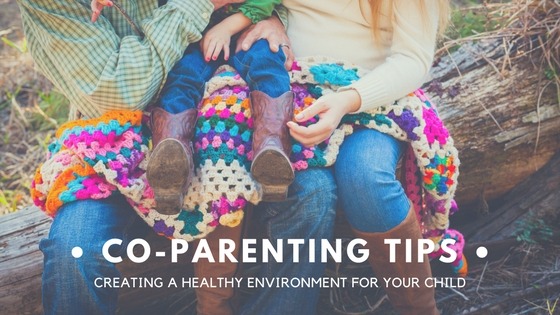Divorce is always complicated and difficult, and when kids are involved, the final judgment isn’t the end of it. You still have to see your ex, especially if you have shared custody. There are ways that you can make things easier, both on your kids on and on yourself and your ex.
Set aside your hurt and anger
Whether the divorce was your idea, your ex-spouse’s, or a mutual decision, there’s bound to be some hurt and angry feelings on both sides. It’s okay to feel those feelings, but you can’t allow them to intrude on co-parenting your children with your ex. Continuing to present a united front to your children, showing respect and consideration to their other parent, and keeping the adults’ problems between the adults is the best way to ensure that your children continue to grow up happy and healthy, despite the divorce.
Keep the kids at the center, but not in the middle
Keeping your children’s best interests at the center of your decisions will go a long way toward peaceful co-parenting. It’s important, however, that your kids not get caught in the middle of disagreements between you and your ex. Call, text, or email your ex directly when you need to communicate with them, rather than sending messages through your kids. Never speak poorly of your ex to or around your children.
Establish respectful, healthy communication
Sometimes, the last months or years before a divorce are filled with bitter fights, yelling, screaming, and other disrespectful forms of communication that become habit between the two spouses. It can be difficult to break this pattern after the divorce, but for the sake of your children and the relationships of all involved, it’s crucial that you develop healthy and respectful communication with your ex. Communication by text or email may be best if you have trouble controlling your temper or if you tend to speak impulsively. Try treating your ex like a business associate – even if you were angry, you would speak calmly and politely to a business associate.
Be consistent
Rules, discipline and schedules should be as similar as possible between your child’s two homes. They do not have to be identical, but the closer they are, the easier it will be for your child to adjust as they go back and forth. If your child is in trouble at your ex’s house, try to follow through and enforce the punishment while they’re at your home if necessary. Bigger issues, such as curfews, off-limits activities, and homework rules should be the same in both homes.
Involve a third party
If there’s an issue that you can’t resolve and that can’t be ignored, bring a third party in to assist. Your divorce lawyer can still be helpful even once the divorce has been finalized, particularly in issues about custody or child support. If you and your ex are unable to agree on a big issue, asking your divorce lawyer to weigh in or even put you in touch with a mediator can help you find a solution.
Double up where you can
Toothbrushes, toothpaste, and other hygienic needs, as well as clothing, toys, bedding, and anything else you can afford to have in both homes will ease your child’s transition between homes. They’ll feel more like they’re home rather than feeling like a guest if they don’t have to pack and unpack all their personal items for each transition. It also ensures that you don’t have to worry as much about forgetting anything.
Call our law offices today at any of our convenient locations and get a free consultation.
Arlington (817) 522-4451
Denton (940) 222-4060
Dallas (972) 362-6848
Fort Worth (817) 764-1375
Cedar Hill (972) 338-9427
McKinney (469) 522-3688
Lewisville (972) 354-4605
You can also contact us online by using our quick contact form.
Further Reading: Children Likely to be Better Adjusted in Joint Vs Sole Custody Arrangements in Most Cases, According to Review of Research.











